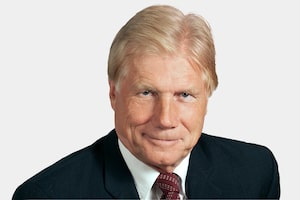There are two politicians, Bob Rae and Thomas Mulcair, whom Conservatives do not wish to see leading the opposition parties.
It's quite a compliment to the interim Liberal leader that, three years away from the next election, the Tories are already targeting Mr. Rae with a scornful attack ad. The just-released ad condemns the Bob Rae of no less than two decades ago when, as Ontario premier, he was with a different party.
Why go after him now? Because Team Harper would prefer anyone else as Liberal leader. By maligning Mr. Rae today, they can hurt him in national polls, sour his reputation among Ontario Liberals and seed doubts throughout the party about making him permanent leader.
As a political force, Mr. Rae and Mr. Mulcair have similarities. Both have their share of weaknesses, but both are of a political quality that Stephen Harper would rather not face. Both are seasoned, erudite, trenchantly articulate, and, with machine-gun thrusts, potent on the attack. They are the Commons' two best debaters.
As with Bob Rae, it's no surprise that the Harper gang has also targeted Terrible Tom. Earlier in the NDP leadership campaign, its operatives leaked a rumour that upon entering federal politics, he was prepared to join the Conservatives if they offered him a cabinet seat. That, of course, was designed to poison his credibility among Dipper members. Ed Broadbent's attacks last week focused on the same theme – his not having true NDP blood.
We will find out the degree of effectiveness of these hits this weekend. The stakes in the NDP's decision on leadership are tremendous, not just for the New Democrats but for Mr. Rae, Mr. Harper, the Bloc Québécois and the unity question.
After the Bloc's humiliation in the last election, the party is already showing signs of springing back to life. It would dearly love to see Mr. Mulcair beaten. Should New Democrats reject their Quebec strongman for someone from outside the province, a Bloc resurgence is more than likely. While there were many factors in the stunning rise of the NDP in Quebec, no one, least of all Mr. Broadbent, should discount Mr. Mulcair's pivotal role. He won the first Quebec seat for the party under Jack Layton and provided it the visibility and credibility among Quebec media that helped set the stage for the breakthrough.
The Liberals would dearly love to see Mr. Mulcair beaten as well. The Grits, who lack a base across the country, would then at least have a chance of gaining a bigger foothold in the province. They also would prefer a winner who is more cut from the NDP's traditional left side and who therefore won't crowd them for votes in the middle. Mr. Mulcair, who wants to broaden the NDP tent, is not that man.
The Conservatives don't need Quebec to fashion another majority. The prairies and Ontario are a strong enough coalition. But in addition to not having such a fire-breathing antagonist as Terrible Tom across the floor, they would have a better chance of holding on to their few seats in Quebec and building on that number without him.
Like the Liberals, they also fear, as they should, an NDP that is more in keeping with Tony Blair's former Labour Party than one that is favoured by Mr. Broadbent.
At stake this weekend is an altering of the country's political dynamic. It's about the old versus the new. Brian Topp, Peggy Nash and Paul Dewar represent the forces of tradition. A victory for these forces would likely see a maintenance of the old right, centre and left axis. It would see the sovereigntists better placed to regain the stature they've had for two decades.
A victory for the other side, for forces as represented by Mr. Mulcair, by Martin Singh, and by wild card Nathan Cullen, who could provide the big surprise of the weekend, offer the likelihood of a departure from that paradigm.
 Lawrence Martin
Lawrence Martin